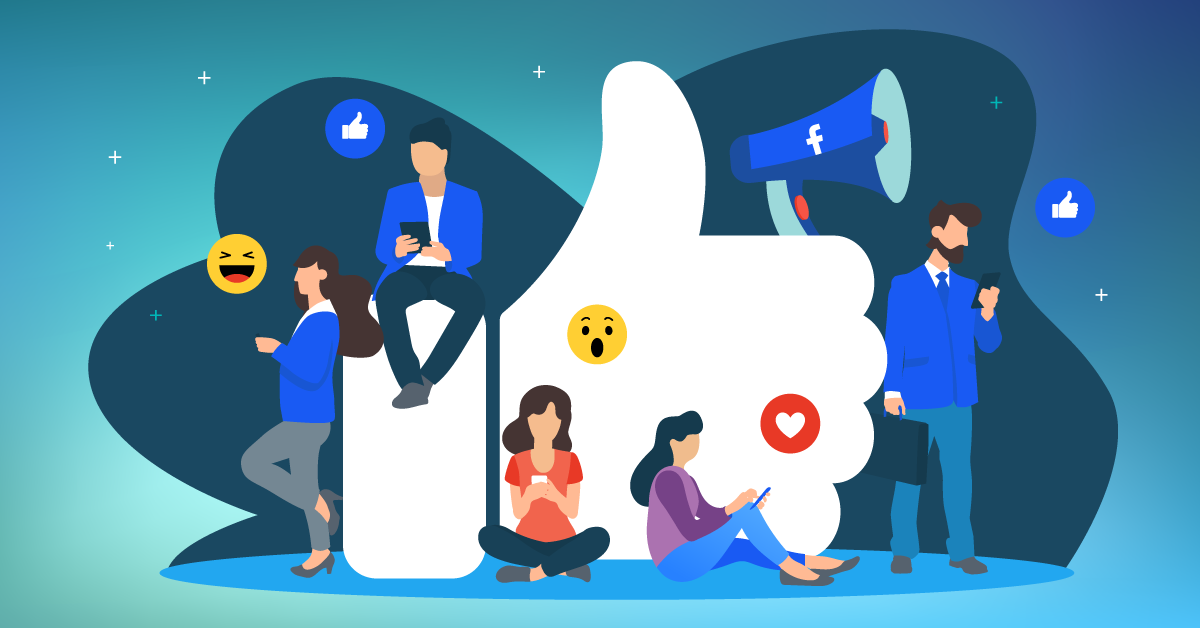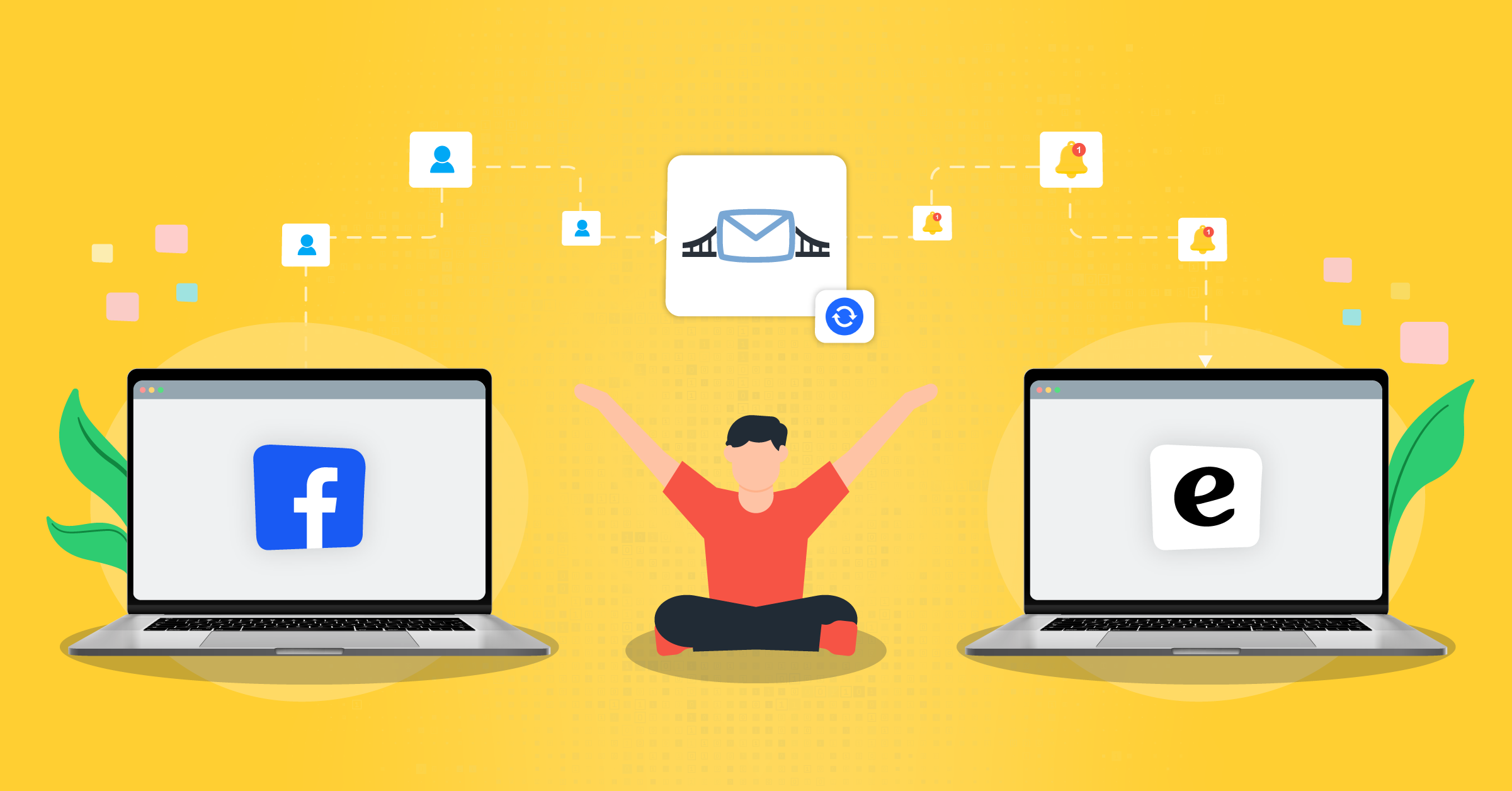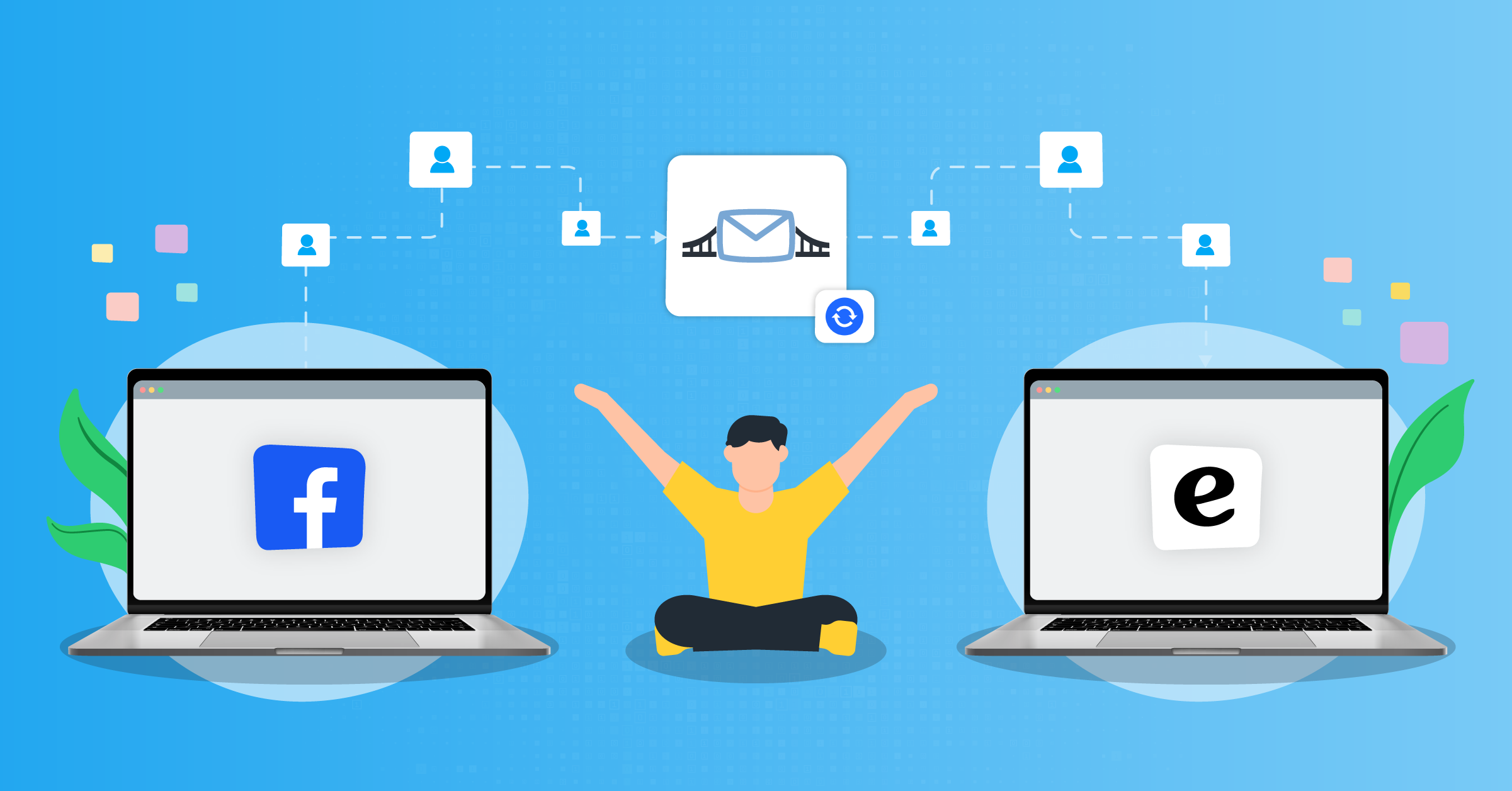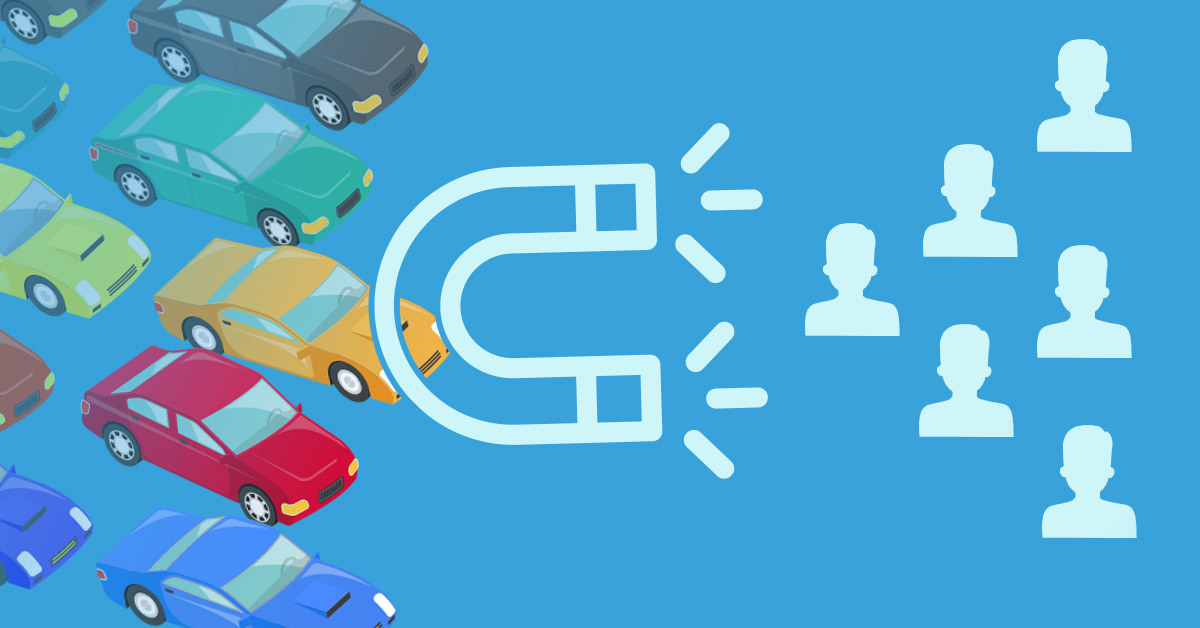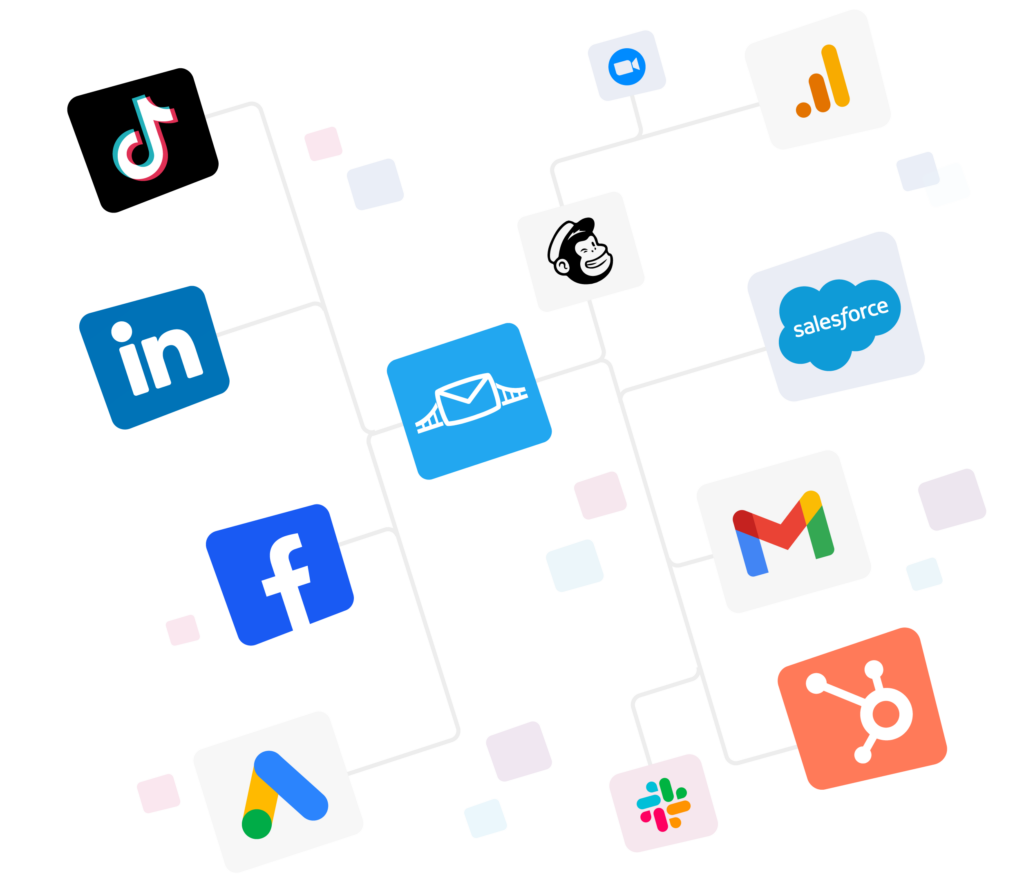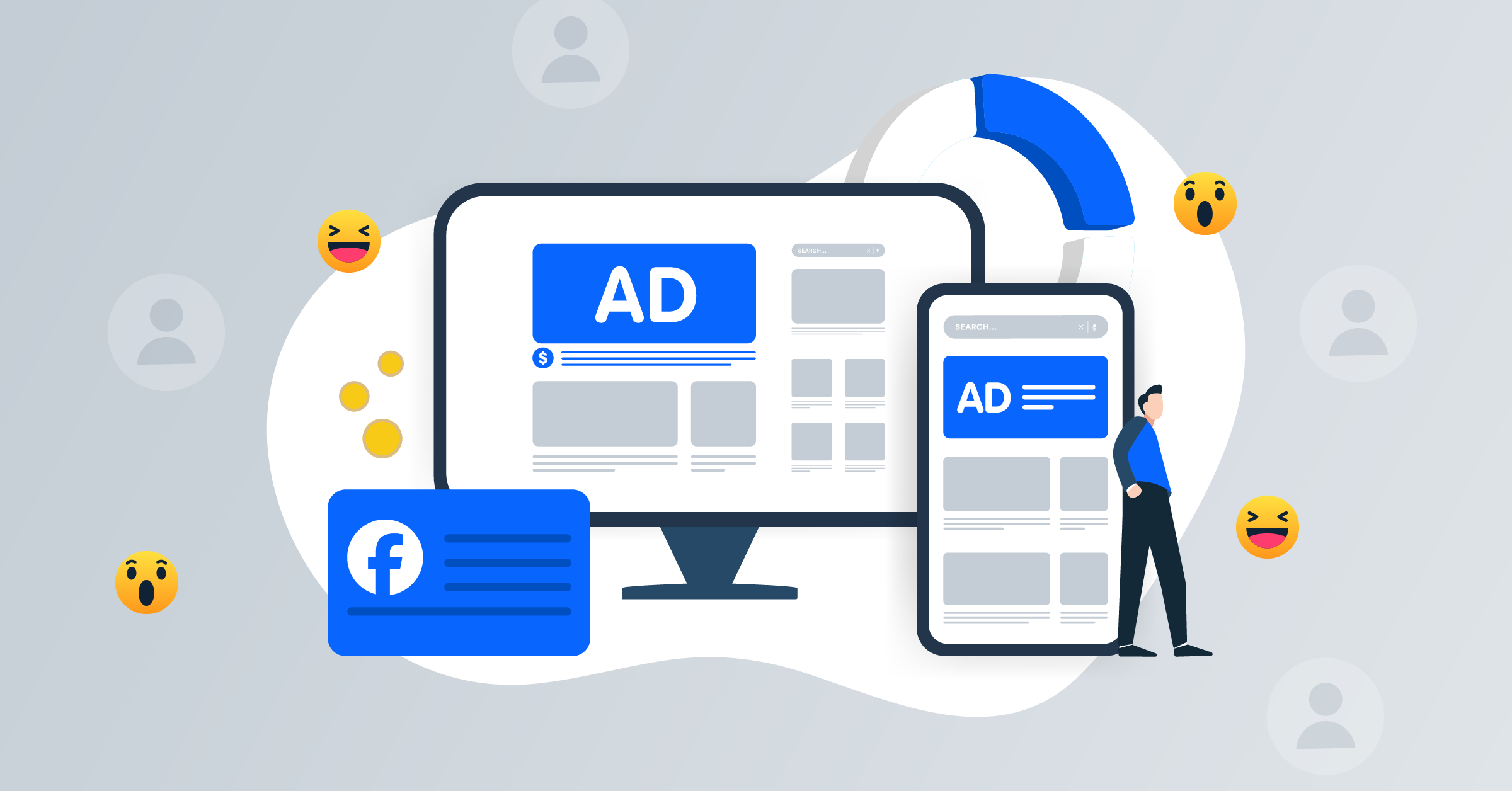
Meta offers the most powerful advertising platforms online. With rising costs, tighter targeting, and evolving privacy rules, however, many advertisers are asking the same thing in 2025: are Facebook ads still worth it?
This article breaks down the answer to this question.
We’ll look at how Facebook ads are performing today, whether they’re a good fit for your business, especially if you’re a smaller operation, and how to get better results with the right strategy and tools.
That includes automation through Meta’s latest campaign types and integrations, which can help increase conversions and accelerate your lead flow, such as:
Why Facebook ads are worth it in 2025
Before we get into whether Facebook ads are worth it, it helps to look at what the data is saying right now.
Across most industries, conversion rates on Facebook typically range from 9% to 14%, with some sectors exceeding 14%.
Facebook click-through rates average around 2.5%, although lead generation campaigns tend to perform slightly better than traffic ads. In numbers, that’s 2.53% versus 1.57%, respectively.
That’s the performance side. Now, look at Facebook advertising adoption rates: about 40% of businesses say Facebook is still their most profitable ad platform. So, despite all the noise around competition and algorithm changes, advertisers are still seeing real results here.
If your strategy includes video, even better. Campaigns built around video are expected to pull in up to 75% more engagement.
No single stat makes or breaks the case, but taken together, they point in one direction: Facebook ads still work if you know how to use them.
All that covered, let’s take a look at six reasons Facebook ads are still working and why it matters:
1. You can still target with serious precision
Even with all the privacy updates, Meta still offers some of the most targeted advertising available. You can go hyper-local, even down to the zip code.
You also get access to interest and behavior data from Facebook as well as Instagram, Messenger, and Threads. And you can build custom audiences based on site visits and email lists, or create lookalikes that actually work.
These features enable you to avoid wasting your budget on random clicks. You’re putting ads in front of people who are way more likely to care.
2. The AI does more of the heavy lifting now
Meta’s AI tools in 2025 handle a lot: testing different creatives, adjusting budgets, optimizing delivery, and they don’t require a marketing background to use. The platform has gotten better at helping non-experts achieve real results.

You don’t need a big team or an agency. You can run more thoughtful campaigns in-house, even if you’re doing a hundred other things.
Wondering how to use AI for lead generation? Here’s everything you need to know.
3. Short-form video is a cheat code
Reels for both ads and boosted posts continue to outperform static ads in terms of engagement. And you don’t need a polished production setup. Just a phone and some decent lighting can get you content that feels native and performs well.
Video ads are within reach. You don’t need a big budget to create stuff people will watch, especially if you’re a local service, retailer, or solo brand.
4. People can take action without leaving the app
Meta’s built-in lead forms, appointment bookings, and Shops enable your audience to buy, book, or submit information directly on Facebook or Instagram. And fewer clicks here mean less friction.
This way, you capture more leads and sales on the spot, which is especially important since most people are on mobile and tend to bounce quickly.
You can also set up automation to instantly sync leads with your CRM, so your team can follow up faster and close more deals.
5. Retargeting still works, and it’s underpriced
Even after Apple’s iOS privacy changes, Facebook’s retargeting capabilities remain strong. They’ve rebuilt tracking with in-platform signals and event-based measurement, and it works.
Someone visits your site and doesn’t buy? You can bring them back for a fraction of the cost it took to reach them the first time.
Learn more about retargeting vs. remarketing to see what works best for you.
6. It’s still one of the cheapest ways to get attention
Facebook and Instagram CPMs are still lower than platforms like Google Search, YouTube, or LinkedIn, especially if you’re targeting locally or working in a niche.
Even on a tight budget, you can build awareness, stay visible, and get in front of thousands.
Are Facebook ads worth it for a small business?
They can be, only if you treat them like a performance tool, not just another place to boost a post.
The advantage Facebook gives small businesses is targeting based on interests, behaviors, and even life events. It means you can use them to aim directly at the people most likely to act.
However, here’s where the real value kicks in: retargeting and lookalike audiences. You can re-engage people who have visited your site, clicked your ads, or interacted with your brand, and then build lookalikes based on those who have converted.
That alone can give you a significant advantage.
Automation also lets you sync your CRM list directly with Facebook, helping you run smarter retargeting campaigns based on real customer data.
If you’re going to invest, do it with intent. Run conversion campaigns linked to solid landing pages. Product shots and discount codes are great in ads. However, make sure your creative tells a story or shows a clear solution to the problem it is going to solve.
It all comes down to knowing how to run ads on Meta using best practices. If so, you can trust that these ads are well worth it.
How to make the most out of Facebook ads
So, are Facebook ads worth it for your business? If the answer is yes, there are several steps you can take to stretch your marketing dollars even further.
Automating your Facebook advertising
Running Facebook ads manually can be time-consuming, especially if you’re managing campaigns across multiple channels.
Automation solves this by eliminating repetitive tasks, such as launching new ad sets, syncing leads, or uploading creatives. You can build once, then scale with templates and workflows that actually work.
Here’s what it covers:
- Faster campaign launches: Use proven templates to build and launch ads across channels quickly.
- Real-time lead syncing: Automatically push leads into your CRM or sales tools as they come in.
- Simplified team workflows: Centralize campaign tasks so your team can move faster with fewer mistakes.
- Smarter scaling: Focus on what works and replicate it without rebuilding from scratch every time.
Tools like LeadsBridge make this easy by connecting your CRM, ad platforms, and lead flows in real time.
Setting up lead generation campaigns – the right way
Lead ads have always been one of Facebook’s most effective ad formats. They let people submit their info directly in-app, which keeps friction low and response rates high.
The success of your Facebook ads depends on your goals, your creative, and how well you’ve defined your audience. That said, some types of businesses tend to see more substantial returns:
- Local businesses: Reach nearby customers with location-based, automated ads.
- Ecommerce brands: Drive traffic directly to product pages and encourage fast conversions.
- Service providers: Run intent-based ads to generate high-quality leads aligned with your offer.
One thing to watch out for is low-quality clickers. Not all leads are good leads. High volume might look nice in an Excel sheet, but if they’re not ready to buy, they are not going to convert.
To filter for genuine intent, add a dropdown or multiple-choice question to your lead form to gauge urgency, such as timeline, budget, or role.
Also, use SMS or email automation to follow up instantly and qualify leads right after they submit. You can do this via automation:
Optimizing your conversions through Conversion leads
Whether you’re offering a free trial, booking test drives, or collecting sign-ups, lead ads work great.
But Meta took it further with the Conversion Leads performance goal.
Instead of just collecting any lead, you can now tell Facebook to focus on quality by showing your ads to people who are more likely to convert into actual customers.
Here’s how it works:
Meta uses your existing customer data (via your CRM or other tools) to understand who your best leads are. With this data, Facebook can target users who share similar traits or behaviors.
To make it happen, you’ll need to connect to the Meta Conversions API. This setup enables Meta to receive real-time feedback from your database, not just from browser activity collected through Meta Pixel.
Then, the platform refines who sees your ads without needing any cookies.
Learn how to set up your Conversions API here. Or, directly build your Conversions API connection using automated data bridges:
Improving your ad performance with exclusive tools: LeadsBridge Performance Booster
Facebook is crowded both with people and ads. So if you’re already running solid campaigns, the next question is: can you push performance further without more manual work?
LeadsBridge Performance Booster connects your CRM data to Meta’s Conversions API and feeds first-party signals back into Meta. This helps the algorithm better understand who your best leads are.
You’ll get:
- Better targeting: Meta can focus on users who are more likely to convert, based on your actual customer data.
- Real-time feedback: Your CRM continuously sends conversion data, improving ad delivery without cookie tracking.
- Hands-off optimization: Once set up, the system adjusts automatically, eliminating the need for manual tweaks to every campaign.
If you’re already using lead forms, custom audiences, and email nurturing, this is the next logical step. It makes your data work harder and your ads work smarter.
Again, you’ll need to first connect your CRM through Meta’s Conversions API, which you can do directly with LeadsBridge.
Takeaways
Are Facebook ads worth it? Success on Facebook takes more than just a budget. And that’s part strategy, part tools. At the forefront is enhanced data management, and how well you handle it.
This article outlines everything you need to make your Facebook advertising investment worthwhile.
















